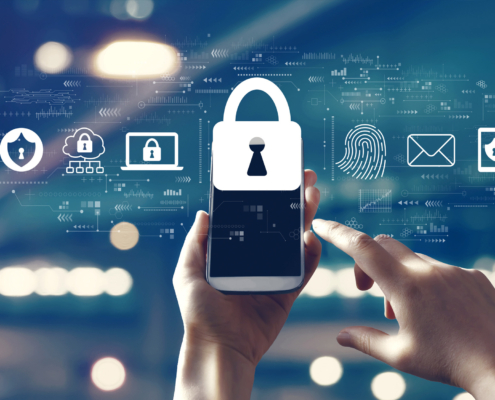 https://www.upfrontcs.com/wp-content/uploads/2024/04/IT-Services-for-Businesses-Looking-to-Grow-in-2024.jpg
1250
2000
Abstrakt Marketing
/wp-content/uploads/2023/08/Upfront-Logo.svg
Abstrakt Marketing2024-04-09 07:52:472024-04-26 10:05:09IT Services for Businesses Looking to Grow in 2024
https://www.upfrontcs.com/wp-content/uploads/2024/04/IT-Services-for-Businesses-Looking-to-Grow-in-2024.jpg
1250
2000
Abstrakt Marketing
/wp-content/uploads/2023/08/Upfront-Logo.svg
Abstrakt Marketing2024-04-09 07:52:472024-04-26 10:05:09IT Services for Businesses Looking to Grow in 2024Cybersecurity and Compliance
Cybersecurity and Compliance Protect Your Business and Your Customers
How secure is your organization? The better and more robust your cybersecurity is, the less likely you are to suffer a data breach or a malware attack. This is good for business, since data breaches and malware attacks can cost you millions of dollars in a worst-case scenario.
But these days, cybersecurity isn’t just about improving uptime in your organization or building a better reputation with your clients (though these are still important). In addition, you have to remain compliant with various laws and regulations.
What Is Cybersecurity and Compliance?
Cybersecurity and compliance are technically two different concepts, but they’re very closely related. Cybersecurity refers to a set of practices and procedures that help you improve the security of your technological infrastructure, including your hardware, software, and networks. Compliance refers to your adherence to any laws, rules, and regulations that affect your business. For example, network security compliance requirements set forth stringent standards for protecting network data.
In the modern era, there are many laws that require certain types of businesses to protect the information of their customers. Accordingly, practicing effective cybersecurity becomes a way of achieving compliance. This is vital for business owners for several reasons:
Remaining Compliant With the Law
These are official laws and regulations that your business is required to follow. If you don’t follow them, and your customers lose sensitive data in the process, you could find your business in major legal trouble. In some scenarios, this could jeopardize the very existence of your business.
Protecting Customer Information
Even if these laws didn’t exist, it would still be a best practice to protect customer information. No ethical business owner wants to jeopardize the security or privacy of their customers because of lax security standards.
If your business doesn’t have proper cybersecurity practices in place, or if you fail to meet all the requirements of relevant legislation, your business could be forced to pay a massive penalty or you could end up in a lengthy legal battle. Either way, you could end up paying millions of dollars unnecessarily in damages.
Securing Your Reputation
Finally, think about your company’s reputation. If you fail to protect the personal and private information of your customers, and you end up suffering a major data breach, it could damage your reputation for years to come. Conversely, if you always make it a priority to protect customer information, you’ll develop a better reputation and you’ll end up working with more customers as a result.
Laws and Regulations in Cybersecurity and Compliance
There are many different laws and regulations in the cybersecurity and compliance space that you’ll need to be aware of. Not all of them will be relevant to your business, but new regulations are being discussed constantly. These are some of the most important laws and regulatory bodies to consider in your strategy.
- Health Insurance Portability and Accountability Act (HIPAA)
- Payment Card Industry Data Security Standard (PCI DSS)
- EU General Data Protection Regulation (GDPR)
- California Consumer Privacy Act (CCPA)
Keep in mind that because new laws get passed regularly, it’s important to stay up to date on the latest compliance standards. Don’t allow your knowledge to be rendered obsolete.
The Most Important Information to Protect
Each law and regulation has different standards for what information should be protected and how it should be protected. However, in most cases, these are some of the most important pieces:
Personal Information
Any individual’s private, personal information should be protected. This set includes things like a person’s name, address, phone number, email address, and Social Security number.
Financial Data
Your business will also likely be responsible for protecting any kind of financial data that’s relevant to your customers. It’s on you to protect their credit card numbers, bank account information, transaction information, and similar data.
Other Protected Information
Certain types of information are also protected by law. For example, healthcare organizations are responsible for a person’s private medical information.

Cybersecurity Compliance Tips
If you want to improve your cybersecurity and compliance further, follow these important tips:
Work with a Partner You Trust
It’s certainly possible to take care of all your cybersecurity and compliance internally, especially if you have an IT team in place to help you handle matters related to technology and security. However, most organizations seem more consistent and reliable results when they work with an external partner. Working with a managed service provider (MSP) could help you save money and maximize your cybersecurity and compliance.
Invest Proactively
Fortunately, most data breaches and cyberattacks can be prevented. With better systems, better procedures, and more robust security measures, only the most sophisticated and dedicated hackers should be able to get past your defenses. The catch is you need to be proactive with these investments; you can’t afford to wait for an attack before you take action.
Accurately Assess Your Risks
Different types of organizations face different levels and types of risk. While many cybersecurity laws and regulations provide some measure of guidance to business owners, it’s still your responsibility to conduct a thorough security audit and understand your biggest risks.
Follow Cybersecurity Insurance Requirements
Unfortunately, cyberattacks are a question of when, not if. That’s why businesses need cybersecurity insurance. In the event of disaster, cyber liability insurance protects your business from fines, reputational damage, and data loss.
Understand Key Areas of Vulnerability
All it takes is a single vulnerability to open your business to a potential cyberattack. Accordingly, you need to understand your key areas of vulnerability and take extra steps to compensate for them. In some cases, defense systems like firewalls and VPNs can help. But it’s also important to thoroughly educate and train your employees so they’re aware of the company’s biggest vulnerabilities.
Stay Informed and up to Date
The worlds of hacking and cybersecurity are constantly evolving, so it’s important for you to stay informed and up to date. If there’s a new kind of threat to organizations like yours, you need to be aware of it.
Do you need a partner who can help you with everything related to your cybersecurity and compliance, from initial planning to ongoing monitoring and implementation? Upfront Computer Solutions can help. Contact us for a free consultation today!
Related Postings
 https://www.upfrontcs.com/wp-content/uploads/2024/04/IT-Services-for-Businesses-Looking-to-Grow-in-2024.jpg
1250
2000
Abstrakt Marketing
/wp-content/uploads/2023/08/Upfront-Logo.svg
Abstrakt Marketing2024-04-09 07:52:472024-04-26 10:05:09IT Services for Businesses Looking to Grow in 2024
https://www.upfrontcs.com/wp-content/uploads/2024/04/IT-Services-for-Businesses-Looking-to-Grow-in-2024.jpg
1250
2000
Abstrakt Marketing
/wp-content/uploads/2023/08/Upfront-Logo.svg
Abstrakt Marketing2024-04-09 07:52:472024-04-26 10:05:09IT Services for Businesses Looking to Grow in 2024 https://www.upfrontcs.com/wp-content/uploads/2024/04/Worker-in-the-office-stressed-at-computer.jpg
1250
2000
Abstrakt Marketing
/wp-content/uploads/2023/08/Upfront-Logo.svg
Abstrakt Marketing2024-04-01 08:51:062024-04-26 10:05:09Data Breach Costs: How to Minimize Damage and Prepare Your Business
https://www.upfrontcs.com/wp-content/uploads/2024/04/Worker-in-the-office-stressed-at-computer.jpg
1250
2000
Abstrakt Marketing
/wp-content/uploads/2023/08/Upfront-Logo.svg
Abstrakt Marketing2024-04-01 08:51:062024-04-26 10:05:09Data Breach Costs: How to Minimize Damage and Prepare Your Business https://www.upfrontcs.com/wp-content/uploads/2024/03/Safeguarding-Your-Business-With-Mobile-Device-Security.jpg
1250
2000
Abstrakt Marketing
/wp-content/uploads/2023/08/Upfront-Logo.svg
Abstrakt Marketing2024-03-06 07:59:382024-04-26 10:05:10Safeguarding Your Business With Mobile Device Security
https://www.upfrontcs.com/wp-content/uploads/2024/03/Safeguarding-Your-Business-With-Mobile-Device-Security.jpg
1250
2000
Abstrakt Marketing
/wp-content/uploads/2023/08/Upfront-Logo.svg
Abstrakt Marketing2024-03-06 07:59:382024-04-26 10:05:10Safeguarding Your Business With Mobile Device Security